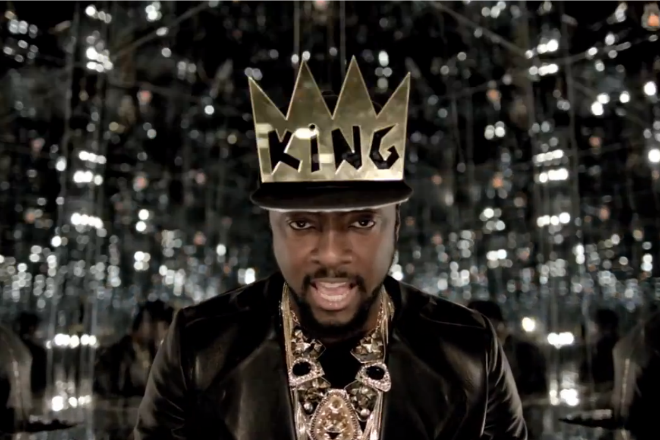Mixed Reviews is a feature where we examine recently released songs and albums with perspectives from two different reporters. This week we listened to an album from will.i.am, purveyor of hip-hop.
Smitha’s take: “#willpower” works. I did not expect that.
To be very clear, I am not a will.i.am. fan. Well, I wasn’t. Now, I’m just pleasantly surprised.
will.i.am’s new album “#willpower,” which releases on April 23, combines dubstep, four-on-the-floor, and snare into its tracks. The entire album is like a giant, synthesized remix. With such auditory variety, the listener can hardly be bored.
While lyrics are generally not will.i.am’s strong suit, he makes an unprecedented effort: some of the lyrics are surprisingly profound. In “The World is Crazy” featuring Dante Santiago, will.i.am laments, “Killer mamas throw their babies in the dumpsters / Ain’t no education for our little youngsters.” However, this exception keeps company with the likes of “I stay on that hustle / I flex that midtone muscle,” lyrics taken from “#thatPower” featuring Justin Bieber. Imagine that, a hashtag and Justin Bieber on the same track.
To compensate for the the generally lackluster lyrics, most of the album features strong dance beats, some of which are borrowed from DJs like Steve Angello and Sebastian Ingrosso. The way “Hello” incorporates multiple beats within a single track is a testament to the diversity of beats in the album.
“#willpower” samples not only beats, but also instruments within the same tracks. The sounds that he integrates are so different that the music should clash horribly, but instead winds up being a really good surprise, like balsamic vinegar. Take for instance “Geekin”, a song about will.i.am’s proficiency with technology and social media (something he appears to be very proud of). Occasionally, there is a dash of acoustic guitar, all set to a dirty fader. Yeah, I didn’t think those belonged together, either. But it works and is, admittedly, very creative.
This album will be popular. And why shouldn’t it? It samples from many of the most popular songs in the past year — I couldn’t help but notice that “Fall Down” ft. Miley Cyrus has an intro that sounds a lot like Ke$ha’s “Die Young” and “Freshy” has a beat reminiscent of Jay-Z and Kanye West’s “Ni***s in Paris.” When the beat drops in “Gettin’ Dumb,” I can’t help but remember the Harlem Shake, but maybe that’s just me. will.i.am even imitates his own track “Scream and Shout” in “#thatPower.”
To look at “#willpower” is to get an idea of the face of pop as will.i.am sees it, particularily since the 2010s began. By drawing from other influences, his integration of different pop elements and sounds is almost a tribute to pop. There have been a lot of complaints (from myself especially) about the repetitiveness of pop, and about the pop industry’s poor execution of its limited repertoire of formulas. However, will.i.am’s songs exhibit a surprising range and diversity of sounds, showing that pop isn’t dead just yet.
Yimeng’s take: not.a.fan of will.i.am
I have a shocking confession to make: I hate Auto-Tune, even if it’s used in an “artistic” manner. I also dislike musicians with silly names, so the odds are stacked against will.i.am before I’ve even listened to his latest album.
But I’ll try to be as fair as possible because the record does have some appealing traits. will.i.am waxes poetic about fame and sex better than most artists (after all, he does have plenty of experience in those areas…), and while Smitha is correct to point out how “#willpower” deviates from typical pop sensibilities, packing guest artists into every track doesn’t say very much for will.i.am’s creativity.
“Scream and Shout” is probably the best track — Britney’s distorted sexbot vocals, 3 octaves below her normal singing voice, work surprisingly well, in a fun, brain-cell melting, Ke$ha-esque sort of way. Miley Cyrus’ cameo in “Fall Down”, on the other hand, falls flat. Whereas Britney has blossomed from an innocent girl to a delightfully skanky woman, Miley will always be irritating and chipmunk-faced. There is no real justification for the top-40 names that saturate the track listing; their contributions hardly mesh with will.i.am’s style and result in confusion.*
What’s more, the gratuitous synthesizer on every track does for every song what Auto-Tune does for will.i.am: it masks something that probably wasn’t that bad to begin with. I can’t help but wonder what his music would be like if all the processing was stripped away. For instance, “Ghetto Ghetto,” featuring a child rapper and heartbreaking lyrics about the fragility of dreams (Don’t want them looking in the past and covering scars/They need a path out the ghetto), reveals a sense of honesty that’s mostly lost in the album. It appeals to the mind and the ears, not the erogenous zones, as the rest of the tracks attempts to do.
To me, “#willpower” is the Snickers Bar of albums: sugary and overstuffed with some good ingredients, but artificial and unsatisfying as a whole.
*Note: There’s also a track with a hashtag in the title and a performance from Justin Bieber. I decided not to listen to it.














